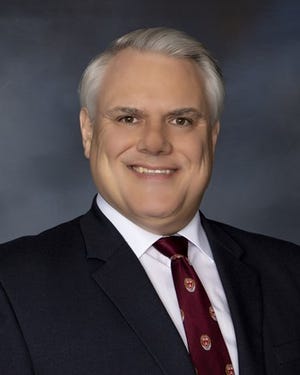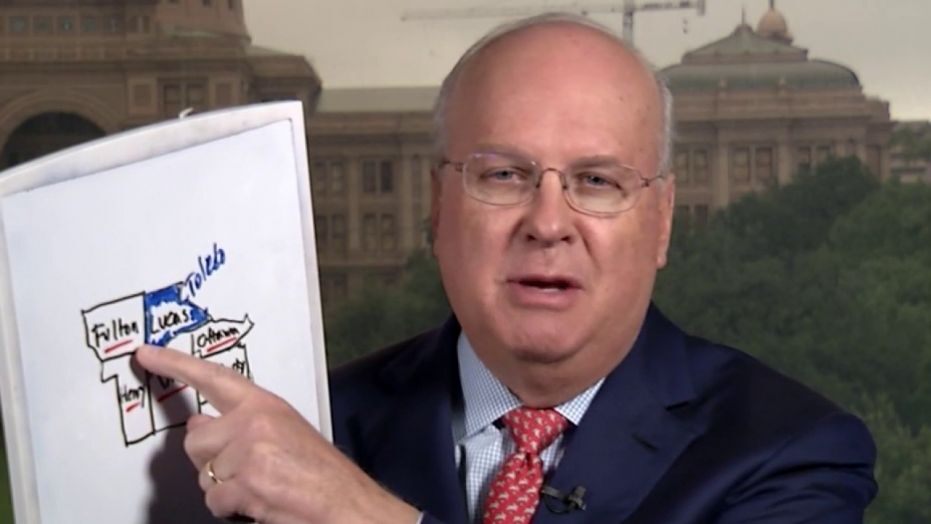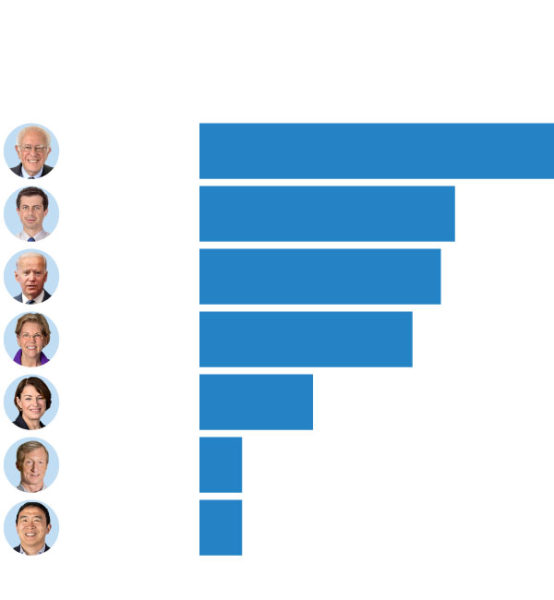Joseph Zupancic is a lawyer and father of three daughters, but he said his toughest job right now is being a school board member in the Canon-McMillan School District.
He’s been on the board for 11 years and never had to decide whether to send kids back to school in the fall. It was always a given.
That changed last month when the board voted 7-2 to reopen schools in August. Zupancic was one of two board members who opted against the move.
His decision wasn’t supported by his three daughters, who will be in 12th, 10th and 8th grades this year.
“My girls are chomping at the bit to get back, especially the senior,” Zupancic said.

But as a parent and school director, he said he voted for what he believed was safest for students — even if they didn’t like the decision.
What he’s seeing is the same battle going on throughout Pennsylvania and the country.
A month later, Zupancic says there’s more evidence he made the right decision, as Pennsylvania is seeing a new surge in positive COVID-19 cases. And the Canon-McMillan School District is in Canonsburg, Washington County, where cases are higher now than they were in the spring when Gov. Tom Wolf ordered schools to close indefinitely.
Southwestern Pennsylvania, home to Pittsburgh and its surrounding counties, is seeing the biggest spikes in the state, according to state health data. Much of the increase is attributed to a surge in cases among people in their 20s who were socializing in bars.
In the past two weeks, 237 new COVID-19 cases and four deaths were reported in Washington County. Canonsburg is also near the border of Allegheny County, where more than 2,300 new cases and 21 deaths were logged in the past two weeks.
The southwestern region overall has reported more than 3,200 cases and 30 deaths in the past 14 days.
“Our district voted on a reopening plan in June before covid cases spiked,” he said.
One of the biggest reasons he voted no is why he would still vote no today: the cultural and political fight over wearing masks.
“What do we do if kids don’t wear masks?” he said.
More:How will schools maintain high quality of education during pandemic?
The politics of reopening schools

President Donald Trump has a lot of support in Washington County. He won there in 2016 by more than 25,000 votes, and he won Pennsylvania overall by about 44,000 votes.
The president didn’t advocate for masks until the week of July 20th. At the height of the pandemic in April, he was saying he wouldn’t wear a mask.
“So with the masks, it’s going to be, really, a voluntary thing,” Trump said in April. “You can do it. You don’t have to do it. I’m choosing not to do it, but some people may want to do it, and that’s OK.”
Earlier in July, Trump reaffirmed he would not issue a national mask mandate. But on Wednesday, July 22, he said he was considering a mask mandate for federal buildings.
Masks are a key issue in school reopening plans because they are required by the state and recommended by the Centers for Disease Control and Prevention.
Zupancic said there’s a contingent of parents in his district following the president’s lead, others who don’t believe the coronavirus is even real, and some who want to follow the safety guidelines set forth by Wolf and Secretary of Health Dr. Rachel Levine.
“There’s probably 20 to 30 percent of our parents who think the virus is a hoax, or that we should open and let them get sick and get over it,” he said. “We have other people who don’t want to chance it. No matter what we decide, a very sizable number of people in our district will be unhappy.”

Canon-Mac, as it’s called by locals, is a district of more than 5,000 students with multiple National Blue Ribbon Schools.
Zupancic said it’s a great school system, and school leaders work well together.
But his district and others across the state are caught up in politics, even if not intentionally, he said.
For example, two of three Washington County commissioners, both Republicans, filed a lawsuit against Wolf over state shutdowns.

School boards, which are elected political bodies themselves, are getting the fallout from local, state and national politics, Zupancic said.
“We’re not getting solid guidance from state or federal governments,” he said.
But he added that he believes the district superintendent is in regular communication with the state Department of Education.
“Local boards are waiting for the state, the state is waiting for the feds, and the feds aren’t making a decision because Trump can change his mind at any time,” Zupancic said.
What the federal government says about reopening schools

U.S. Education Secretary Betsy DeVos is following Trump’s directive that all schools should reopen, and they will lose federal funding if they don’t.
In a letter to educators, Pennsylvania Attorney General Josh Shapiro said he would fight against that because it is unconstitutional.
“While Secretary DeVos’ threats have been vague, the Trump Administration has limited authority to withhold properly appropriated federal funding to schools in the Commonwealth,” Shapiro said in the letter. “The Constitution makes clear that Congress, not the Executive Branch, has the power to appropriate federal funds and to attach conditions to those funds. There are instances when Congress directs a federal agency—like the Department of Education—to set conditions for funding, particularly through discretionary grant programs. As of this writing, Congress has not made full-time, in-person instruction a requirement to receive federal education dollars. Secretary DeVos has indicated that she may attempt to unilaterally stop Congressionally-appropriated funds from flowing to certain districts and schools in violation of the law. If that happens in a way that impacts the Commonwealth, I will take all appropriate actions.”
As of Friday, July 23, there was no reopening plan listed on the coronavirus section of the U.S. Department of Education website.
The safety guidance offered was the same as in the spring, including staying home from school when sick, washing hands often and more.
The Pennsylvania Department of Education has reopening guidance at the top of its website.
Best practices, according to the state, include wearing masks, social distancing, outdoor education, staggering class times and more.
CDC guidance has also been issued, but CDC recommendations are hard to meet, Zupancic said.
“One kid per bus seat sounds good on paper, but I don’t have all this extra money to get extra buses and hire more drivers,” he said.
Canon-Mac’s plan is to send kids to school on buses while wearing masks.

State Rep. Russ Diamond, a Republican from Lebanon County, opposes Wolf’s mask mandate in schools.
“Forcing these on kids during their formative years and keeping them from seeing facial expressions will have a psychological impact long term,” he said.
He also said children are not a demographic that has been heavily impacted by the virus.
State health data shows that nobody younger than 20 has tested positive for the virus in the past two weeks, but state health officials say children could carry the virus to older, more vulnerable residents.
Diamond said he also opposes wearing masks in schools because teachers will be unfairly burdened with more responsibility.
“Teachers have enough to do. Now, they have to be the mask police, too?” Diamond said.
The governor’s mask order excludes people with medical conditions that prevent them from wearing masks, but they are not required to show proof of any medical conditions.
Zupancic worries mask rules won’t be followed and students won’t practice social distancing in hallways. He’s concerned the infection, which is already surging in the region, will continue to grow and be worsened by schools reopening next month.
“I’m concerned we could be causing a very significant problem in our community,” he said.
Teachers concerned about safety
As COVID-19 cases continued to rise in July, the Pennsylvania State Education Association asked Wolf to require that all schools develop an online learning plan.
PSEA President Rich Askey said the plan is needed if the continued spread of the coronavirus makes opening schools for in-person instruction unsafe for students, educators, and their families.
“It is extremely important for Pennsylvania’s public schools to plan for the distinct possibility that further increases in COVID-19 cases will make it impossible to safely reopen Pennsylvania’s schools for in-person instruction,” Askey said.
He said his fellow educators and support professionals want to return to school and be with their students in person, but there are concerns about health risks given the recent upward trajectory of coronavirus cases.
“Unfortunately, an increasing number of Pennsylvania educators and parents are concerned that reopening schools for in-person instruction poses significant health risks that, in the current environment, may be impossible to completely prevent,” Askey said.
Wolf has not issued a mandate for online learning.

Secretary of Education Pedro Rivera said the health and safety of students, teachers and staff “must be paramount” as schools chart their reopening plans for the upcoming school year.
“The Department of Education has been focused on supporting schools with resources and best practices to help school leaders make informed decisions within their local contexts and in response to evolving conditions,” he said in a statement.
If someone in a school district gets sick, the state health department will assist, said Levine, the state health secretary.
Zupancic wonders how the department will be able to help up to 500 school districts across the state if there are simultaneous outbreaks.
“In those instances when someone tests positive, public health staff from the department will immediately assist the school with risk assessment, isolation and quarantine recommendations, and other infection control recommendations,” Levine said.
Zupancic said contact tracing “would be a nightmare” in a school setting, especially in his high school of about 1,700 students.
Many school buildings in Pennsylvania do not have the space available to ensure all students can be spaced appropriately for social distancing, according to the Pennsylvania School Boards Association.
“I wish politicians in Harrisburg and Washington, D.C. would walk through a high school hallway and explain how they will follow social distancing,” Zupancic said. “There’s no way. If one kid gets it, they all get it.”
Searching for solutions
Most decisions during the pandemic are at the mercy of elected officials and appointed politicians, Zupancic said.
“School board members make the ultimate decision whether to open or not based on the best information and resources we have,” he said.
It’s not lost on Zupancic that the nine Canon-Mac board members who voted on that decision met virtually on Zoom because it wasn’t considered safe to hold meetings in person in June.
“But we voted to send hundreds of kids to school buildings,” he said.
Zupancic wants Wolf to require online education for the first nine weeks of school, or even just the first month of school.
“Let’s make sure these surges don’t go higher and we know what we’re dealing with before we send thousands of kids back to school together,” he said.
There are about 2 million children enrolled in Pennsylvania public schools, according to state data.
Wolf on July 21 said he is continuing to evaluate school guidance based on the spread of the virus throughout Pennsylvania.
West Shore School District in Lewisberry is choosing a phased reopening for the nearly 8,000 students it serves in northern York County and eastern Cumberland County.
The district was working toward totally reopening as counties were entering the green phase, but by July 16 there was a statewide mask mandate, new travel guidance, restrictions on group sizes and climbing cases in the region, district officials said. They opted for a slower opening instead.
From Aug. 25 to Sept. 18, all West Shore students will attend school online through the district’s distance learning program. On Sept. 10, a recommendation will be made to either keep school online or gradually return to buildings, starting on Sept. 21.
As students gradually return, priority will be given to elementary and high-needs special education students, according to the district.
Zupancic said that’s a good model that allows for a 14-day buffer with Labor Day weekend, when many families may travel to areas that could be covid hotspots.
Overall, Canon-Mac, and likely every district, is figuring out reopening plans day by day.
“It’s a work in progress until the first kid walks in the building,” he said.
Candy Woodall is a reporter for the USA Today Network. She can be reached at 717-480-1783 or on Twitter at @candynotcandace.


